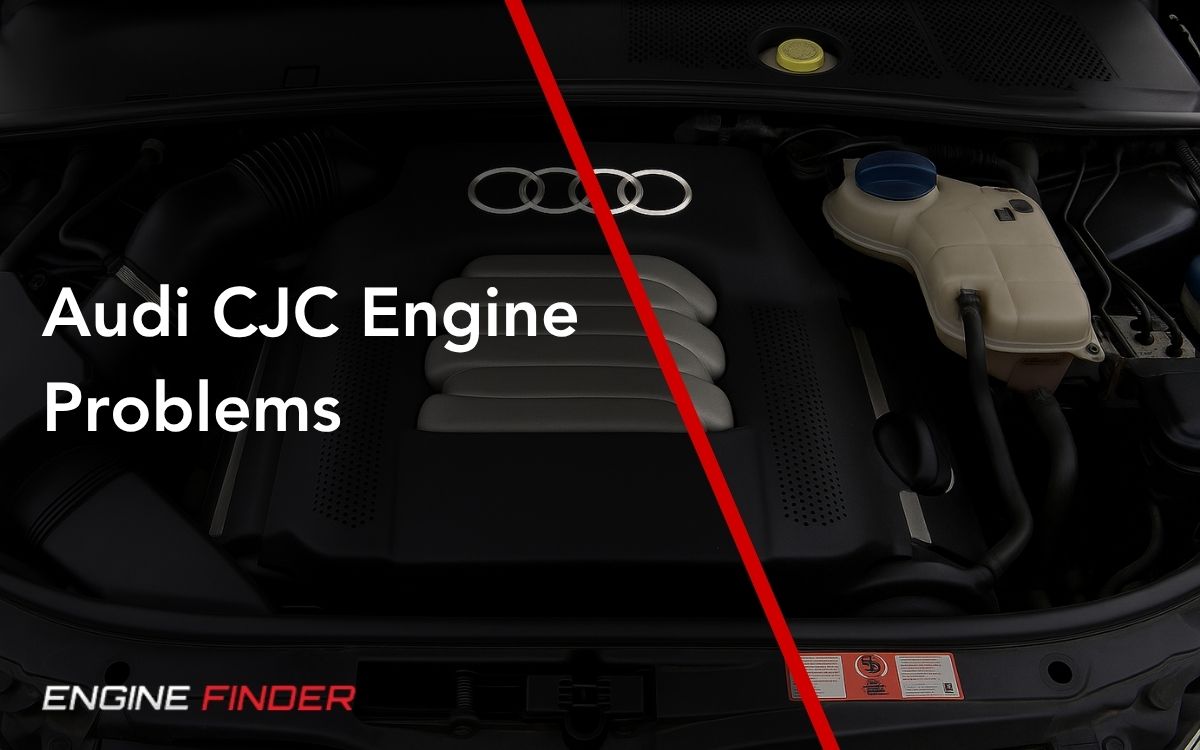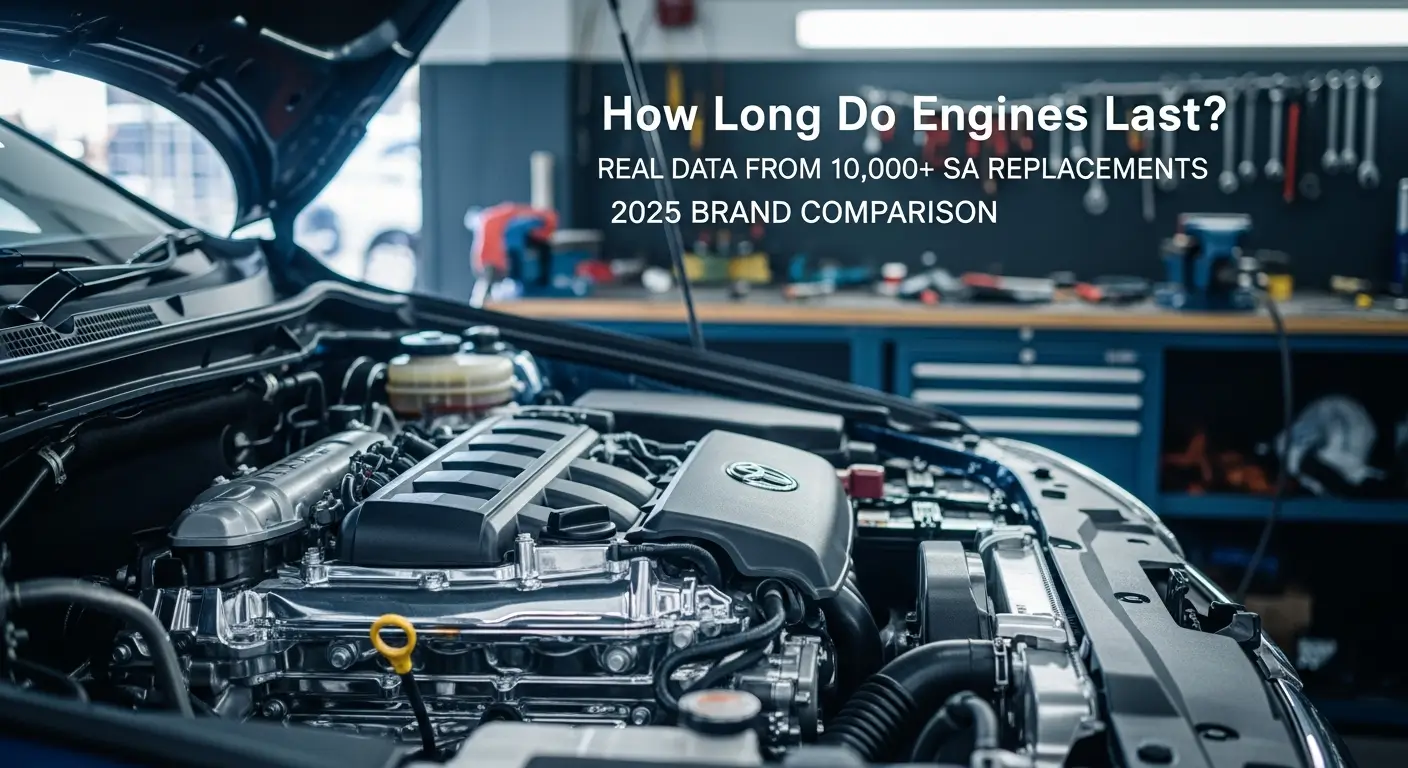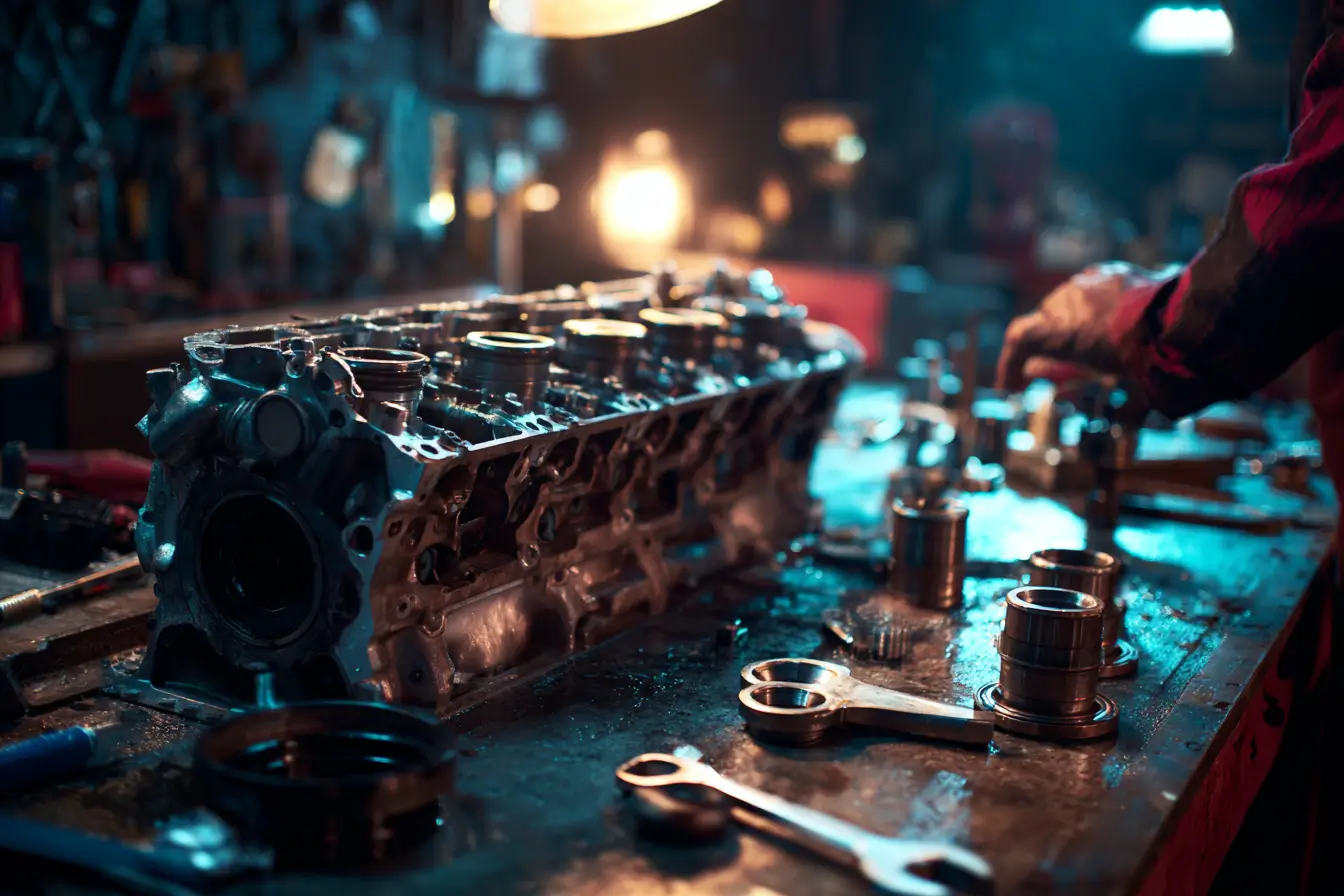
Common Audi CJC Engine Problems: Complete Diagnosis Guide
Key Takeaways
| Problem | Main Symptoms | Possible Causes |
|---|---|---|
| Fuel Injector Failure | Rough idle, black smoke, poor fuel economy | Carbon buildup, injector wear, fuel contamination |
| Timing Belt Problems | Engine noise, reduced performance, cam timing errors | Belt wear, tensioner failure, water pump issues |
| DPF Blockages | Reduced power, warning lights, excessive exhaust smoke | Short journeys, poor quality fuel, oil contamination |
| Turbocharger Issues | Loss of power, whistling sounds, oil leaks | Oil starvation, carbon buildup, bearing wear |
| Oil Pump Problems | Low oil pressure warnings, engine knocking | Drive chain wear, pump housing damage, debris |
The Audi CJC engine is a 2.0-liter turbocharged diesel engine commonly found in Audi A4 B8 models from 2009-2012. While known for its efficiency and performance, this common rail direct injection engine has developed a reputation for several recurring issues that owners should be aware of.
Note: While the CJC shares similar technical specifications with other 2.0L TDI engines, comprehensive engine family documentation does not classify CJC as part of the EA189 family. Confirmed EA189 engines include codes such as CAGA, CJAA, CBEA, and others, but CJC is not among the established codes for this family.
Audi CJC Engine Specifications
| Specification | Details |
|---|---|
| Engine Code | CJC |
| Displacement | 2.0L (1,968cc) |
| Configuration | Inline-4, DOHC |
| Fuel System | Common Rail Direct Injection |
| Turbocharging | Single turbocharger |
| Power Output | 105-143 kW (143-193 hp) |
| Production Years | 2009-2012 |
| Application | Audi A4 B8, A5 8T |
1. Fuel Injector Failure
Causes
- Carbon buildup on injector nozzles due to direct injection design
- Poor quality diesel fuel causing contamination
- Extended service intervals allowing debris accumulation
- High-pressure fuel system wear over time
Symptoms
- Rough idle and engine misfiring
- Black or white smoke from exhaust
- Reduced fuel economy and performance
- Engine warning lights on dashboard
- Difficulty starting, especially when cold
Solution
- Replace faulty fuel injectors with genuine Audi parts
- Clean fuel system using professional equipment
- Use high-quality diesel fuel with cleaning additives
- Replace fuel filter at recommended intervals
- Perform injector coding after replacement
DIY Difficulty / Hours
- Professional repair recommended: High difficulty / 4-6 hours
- Cost: R8,000-R15,000 per injector including labor
Important Warning
Fuel injector problems can cause severe engine damage if ignored. The high-pressure common rail system requires professional diagnosis and specialized tools for proper repair.
2. Timing Belt Problems
Causes
- Normal wear after 80,000-120,000 km service life
- Water pump failure causing belt contamination
- Tensioner bearing failure
- Exposure to oil leaks from valve cover gasket
Symptoms
- Metallic rattling noise from engine front
- Engine performance reduction
- Cam timing error codes
- Rough idle or misfiring
- In severe cases, complete engine failure
Solution
- Replace timing belt, tensioner, and idler pulleys as a kit
- Replace water pump simultaneously
- Check and replace crankshaft and camshaft seals
- Ensure proper belt tension and timing alignment
DIY Difficulty / Hours
- Professional repair only: Very high difficulty / 6-8 hours
- Cost: R12,000-R18,000 including water pump and labor
Maintenance Tip
Always replace the timing belt as a complete kit including tensioner, idler pulleys, and water pump. This prevents premature failure of new components.
3. DPF Blockages
Causes
- Predominantly short-distance driving preventing regeneration
- Poor quality diesel fuel with high sulfur content
- Engine oil contamination from failed injectors
- Faulty EGR valve allowing excessive soot buildup
Symptoms
- Reduced engine power and acceleration
- DPF warning lights on dashboard
- Excessive black smoke from exhaust
- Increased fuel consumption
- Engine going into limp mode
Solution
- Perform forced DPF regeneration using diagnostic equipment
- Clean or replace DPF filter if heavily contaminated
- Address underlying causes (EGR, injectors)
- Use high-quality diesel fuel and regular highway driving
DIY Difficulty / Hours
- DPF cleaning: Medium difficulty / 2-3 hours
- DPF replacement: Professional recommended / 3-4 hours
- Cost: R5,000-R8,000 for cleaning, R25,000-R35,000 for replacement
Prevention Strategy
Regular highway driving for at least 20 minutes allows the DPF to reach operating temperature for proper regeneration. City-only driving is the primary cause of DPF problems.
4. Turbocharger Issues
Causes
- Oil starvation due to blocked oil feed lines
- Carbon buildup in variable geometry mechanism
- Bearing wear from excessive heat cycles
- Contamination from failed DPF or EGR systems
Symptoms
- Loss of power and slow acceleration
- Whistling or whining sounds from engine bay
- Blue smoke from exhaust indicating oil burning
- Oil leaks around turbo housing
- Actuator error codes
Solution
- Replace turbocharger with reconditioned or new unit
- Clean oil feed and return lines thoroughly
- Replace air filter and intercooler if contaminated
- Address root causes to prevent recurrence
DIY Difficulty / Hours
- Professional repair only: Very high difficulty / 5-7 hours
- Cost: R18,000-R30,000 for reconditioned turbo including labor
Critical Warning
Continuing to drive with a failed turbocharger can cause severe engine damage. Metal debris from the turbo can enter the engine and damage pistons, valves, and cylinder walls.
5. Oil Pump Problems
Causes
- Drive chain stretch and wear affecting pump operation
- Debris in oil system damaging pump gears
- Manufacturing defects in pump housing
- Extended oil change intervals causing pump wear
Symptoms
- Low oil pressure warning lights
- Engine knocking or rattling sounds
- Reduced engine performance
- Oil pump drive chain rattle on startup
- Complete engine failure in severe cases
Solution
- Replace oil pump and drive chain assembly
- Flush engine oil system thoroughly
- Replace oil filter and use high-quality engine oil
- Check and replace oil pressure sensor if necessary
DIY Difficulty / Hours
- Professional repair only: Very high difficulty / 8-12 hours
- Cost: R15,000-R25,000 including labor
Emergency Warning
Oil pump failure requires immediate engine shutdown to prevent catastrophic damage. Never continue driving with low oil pressure warnings.
Preventative Maintenance Tips
Regular Service Schedule
| Service Type | Interval | Components |
|---|---|---|
| Oil Change | 10,000 km | Engine oil, filter |
| Fuel Filter | 20,000 km | Fuel filter, water separator |
| Timing Belt | 80,000 km | Belt, tensioner, water pump |
| Major Service | 40,000 km | All filters, fluids, inspection |
Critical Maintenance Items
- High-Quality Fuel: Use only premium diesel fuel from reputable suppliers
- Regular Highway Driving: Essential for DPF regeneration and carbon burning
- Oil Quality: Use VW 507.00 specification oil only
- Early Problem Detection: Address warning lights immediately
Conclusion
The Audi CJC engine, while capable of excellent performance and fuel economy, requires diligent maintenance to avoid costly repairs. The most critical issues - fuel injector problems, timing belt maintenance, and DPF care - can be largely prevented through proper servicing and driving habits. When problems do occur, early intervention and professional repair are essential to prevent cascade failures that can result in complete engine replacement costing R80,000 or more.
For South African owners, finding quality Audi engines for sale or professional Audi stripping for spares services can provide cost-effective solutions when major repairs become necessary.
FAQ
How often should I service my Audi CJC engine?
Follow the 10,000 km oil change interval religiously, with major services every 40,000 km. However, if you do mostly city driving, consider reducing intervals to 7,500 km to protect the DPF and injectors.
What type of oil should I use in the CJC engine?
Use only engine oil meeting VW 507.00 specification. Popular brands include Castrol Edge Professional, Mobil 1 ESP, or genuine Audi oil. Never use incorrect oil specifications as this can damage the DPF.
How can I prevent DPF problems?
Take your vehicle on highway drives for at least 20 minutes weekly to allow proper DPF regeneration. Avoid short trips where possible, and use quality diesel fuel with cleaning additives.
Is the CJC engine reliable long-term?
With proper maintenance, the CJC engine can be reliable. However, it requires more attention than naturally aspirated engines due to its complex turbo-diesel design and emissions systems.
What should I do if my engine loses power suddenly?
Stop driving immediately and check for warning lights. Common causes include DPF problems, turbo failure, or fuel system issues. Continuing to drive can cause expensive damage.
References and Further Reading
Technical Resources
Maintenance Guides
Community Resources
Related Articles
Explore more insights on similar topics

How Long Do Engines Last on Average? Complete Longevity Guide
Understand real-world engine lifespan ranges, warning signs, lifecycle stages, costs, and maintenance best practices for South African drivers.

How Does an Engine Overhaul Work? Complete Guide to Engine Rebuilds
Learn everything about engine overhauls: types, warning signs, process, costs, and when to rebuild vs replace your engine in South Africa.
.webp)
Timing Chain vs Timing Belt: Complete Guide to Cambelt Replacement & Lifespan
Learn everything about timing chains and timing belts (cambelts): differences, lifespans, replacement costs, and which is better for your engine in South Africa.
Important Disclaimer
This content is for informational purposes only and is based on research from automotive industry sources. Engine Finder is not a certified automotive repair facility. Always consult with qualified automotive professionals before performing any repairs or maintenance. Improper repairs can result in personal injury, property damage, or vehicle malfunction. We assume no responsibility for actions taken based on this information.
